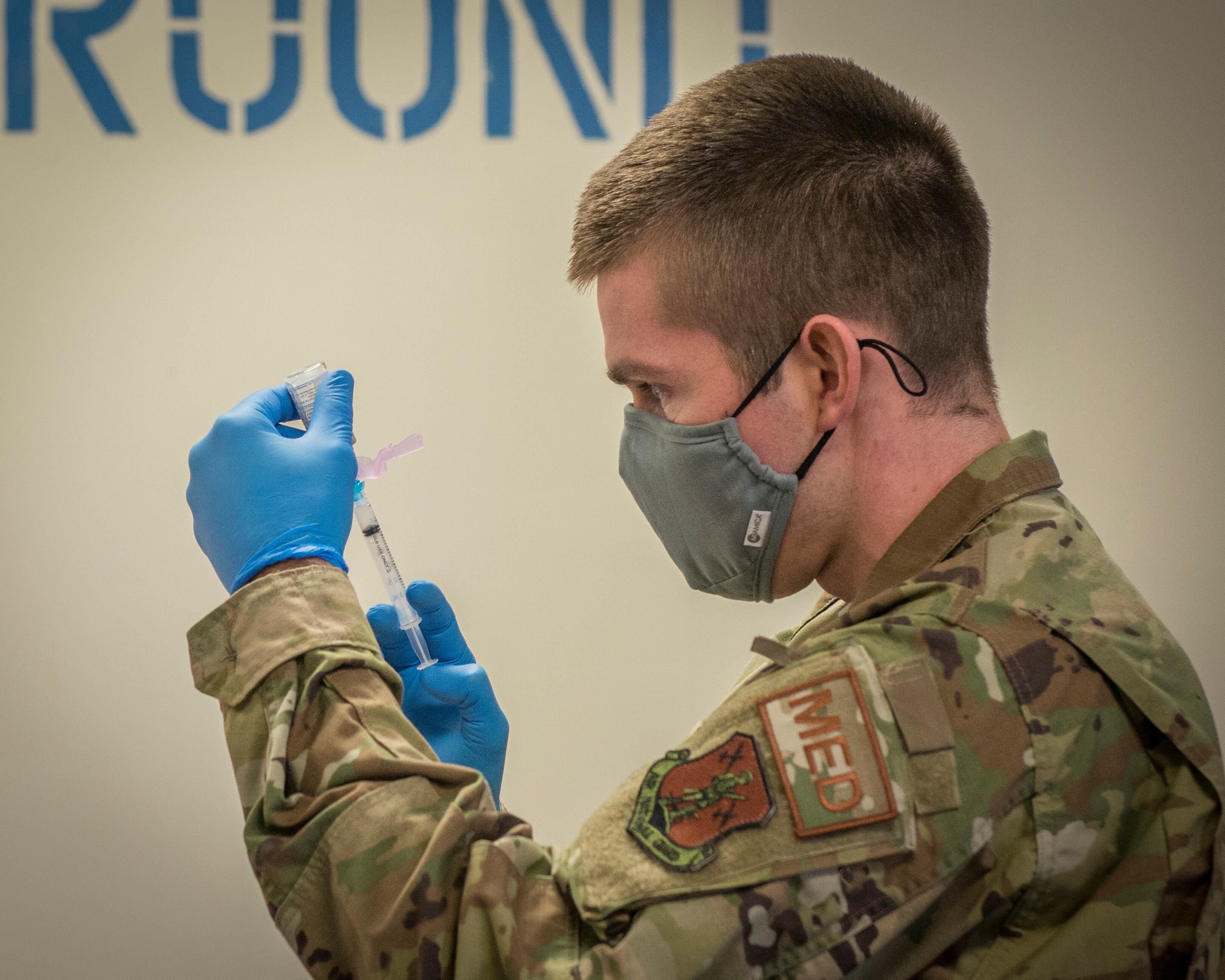Nearly 95% of airmen and guardians — about 473,000 people — are fully vaccinated against the coronavirus, the Department of the Air Force announced Friday.
About 23,500 troops remained completely unprotected as of 8 a.m. Friday, more than half of whom belong to the Air Force Reserve or Air National Guard. That accounts for around one in every 20 people in the department.
Nearly twice as many Guard and Reserve airmen are unvaccinated than in the active duty component, 14,500 to 8,800. This is the first time the Air Force has released holistic data on its effort to inoculate the department of about 501,000 uniformed members.
RELATED
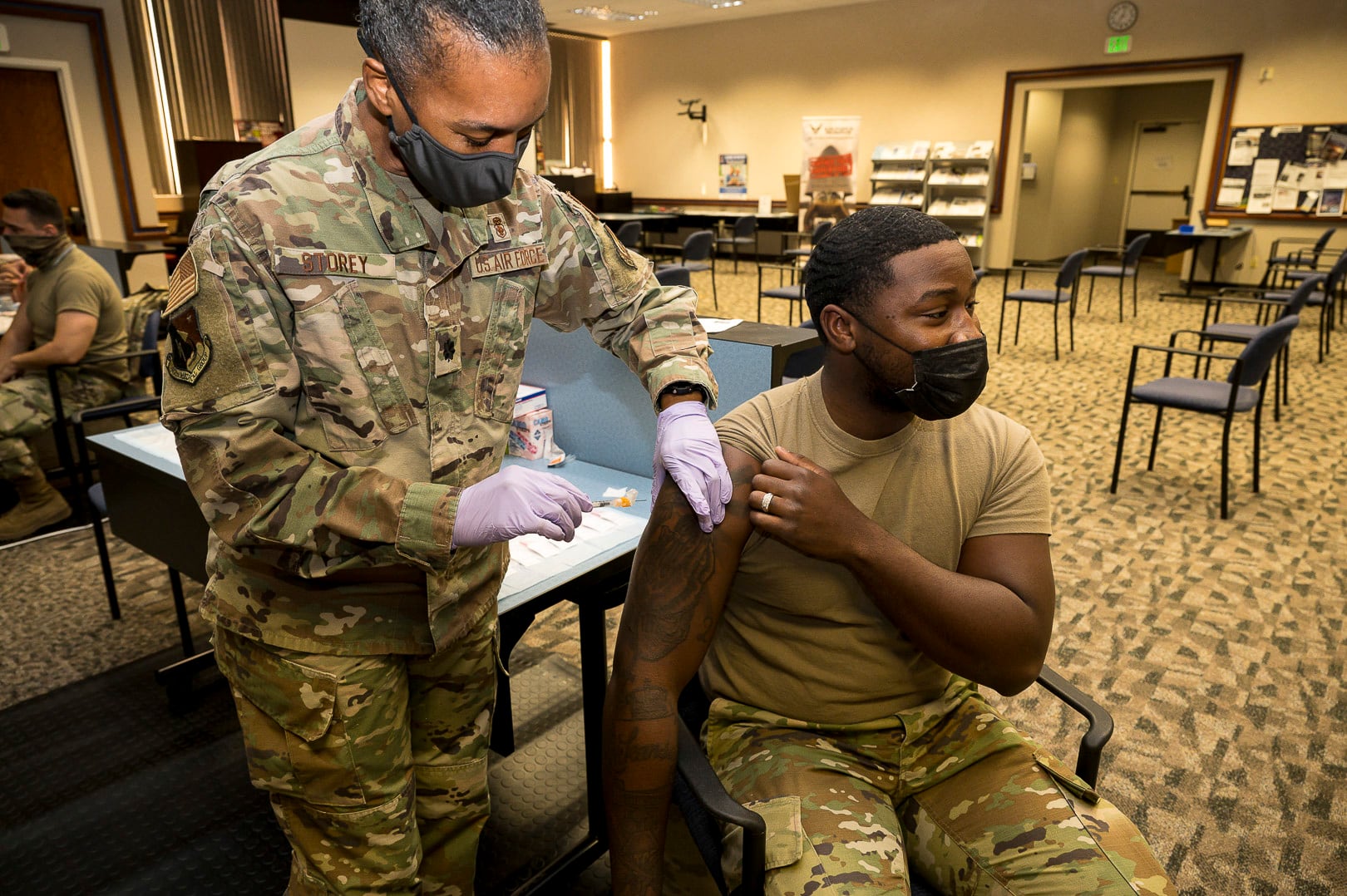
The Air Force’s deadline for Guardsmen and Reservists to complete a one- or two-dose vaccine regimen passed Thursday. Active duty Air Force and Space Force members had to get it done by Nov. 2. To be considered fully vaccinated, a person must wait two weeks after his or her second Moderna- or Pfizer-made shot, or after a single Johnson & Johnson dose.
All three versions are federally endorsed for emergency use, and Pfizer’s vaccine Comirnaty is the only one to earn full approval for people ages 16 and older so far.
Right now, less than 1% of the total force remains partially vaccinated, meaning about 4,000 people have received only one of the two Moderna or Pfizer doses.
More than 4,800 exemptions have been approved for people with select medical conditions, such as myocarditis or a known allergy to a component of the vaccine, and for those who will soon leave the military.
Some 2,300 people in the Guard and Reserve won administrative exceptions, indicating they plan to leave the service of their own volition. Another 1,200 or so Guardsmen and Reservists are exempt for medical reasons.
Officials haven’t approved any requests for religious exemptions, citing the deadly virus’s ongoing threat to public health and military readiness concerns. The service is still working through about 10,500 religious exemption requests, including nearly 6,000 from Guardsmen and Reservists.
RELATED
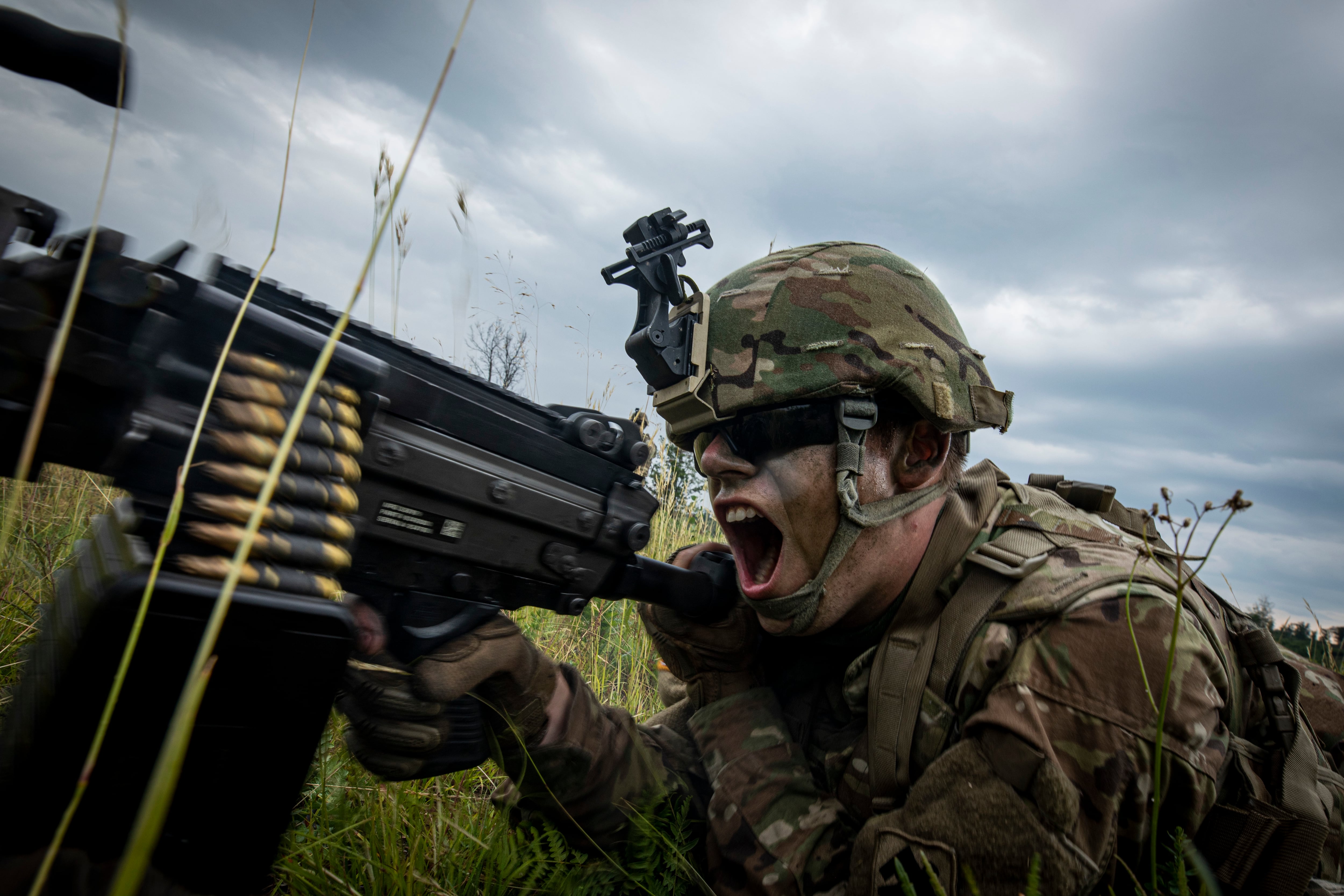
People hoping for a religious waiver outpace those who have outright refused in writing to get the shot or who simply have not made an appointment. Compared to more than 10,000 exemption hopefuls, about 4,800 haven’t started the vaccination process and 3,200 have declined it.
Few people whose exemption requests were rejected have appealed. Others have chosen to get the shots after being turned down, while still others opted to start the process of leaving the military.
Military and health experts have voiced concerns about how widely Guard and Reserve units would comply with the Pentagon’s vaccination mandate.
More part-time service members in low-vaccination areas may bring local vaccine skepticism and outright anti-vaccination sentiments to the military, and might not be required get the shot for their regular jobs. They also risk serious illness in themselves and others if infected with COVID-19 at their civilian jobs or the health care facilities they’ve helped out since early 2020.
To limit the spread of disease and possibly incentivize the jab, the Air Force has started restricting what its members are allowed to do while unvaccinated.
As of Nov. 29, active duty airmen who aren’t fully vaccinated or are still awaiting a decision on their exemption request, can no longer qualify for permanent change of station moves — limiting their career options going forward.
RELATED
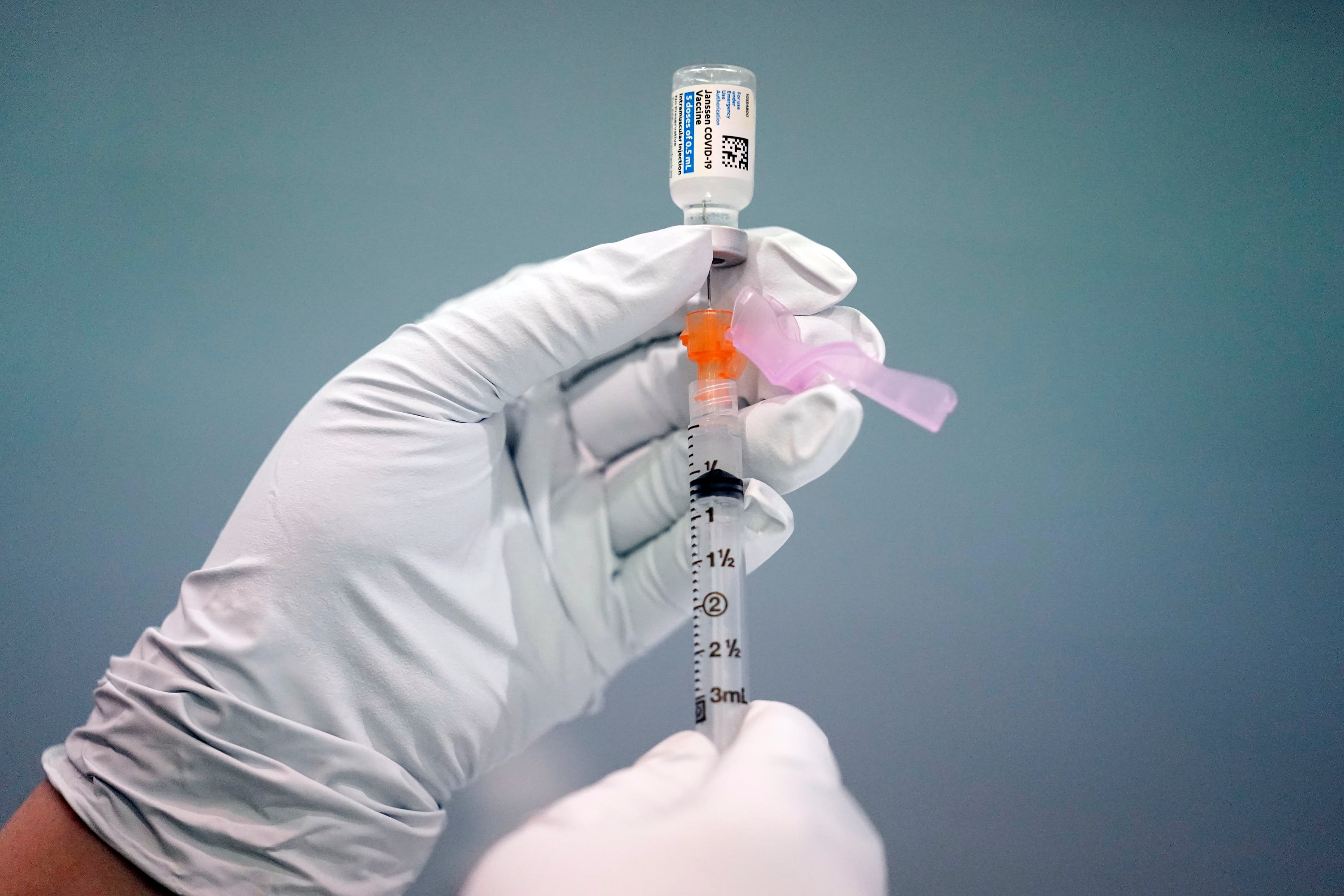
If an airman or guardian cannot deploy for at least a year because they haven’t completed their shots, the Air Force will consider whether to keep them or start the process of kicking them out, the service said on a question-and-answer page. Each case will be handled on an individual basis; how long it takes to discharge someone depends on multiple factors, including their length of time in the service.
“Willfully disobeying a lawful order is incompatible with military service, and to get a vaccination is a lawful order,” Air Force Secretary Frank Kendall said during an online town hall Nov. 18. “We have to do a lot of things to take care of the health of the force, and people have been required to get vaccinations for a number of things.”
It’s unclear how many of the Air Force’s 152,500 permanent, full-time civilian employees were fully vaccinated by their Nov. 22 deadline. Air Force public affairs referred a Nov. 29 request for the data to the White House Office of Management and Budget, which referred the query to the Defense Department. The Office of the Secretary of Defense has not responded to the request as of Dec. 3.
RELATED
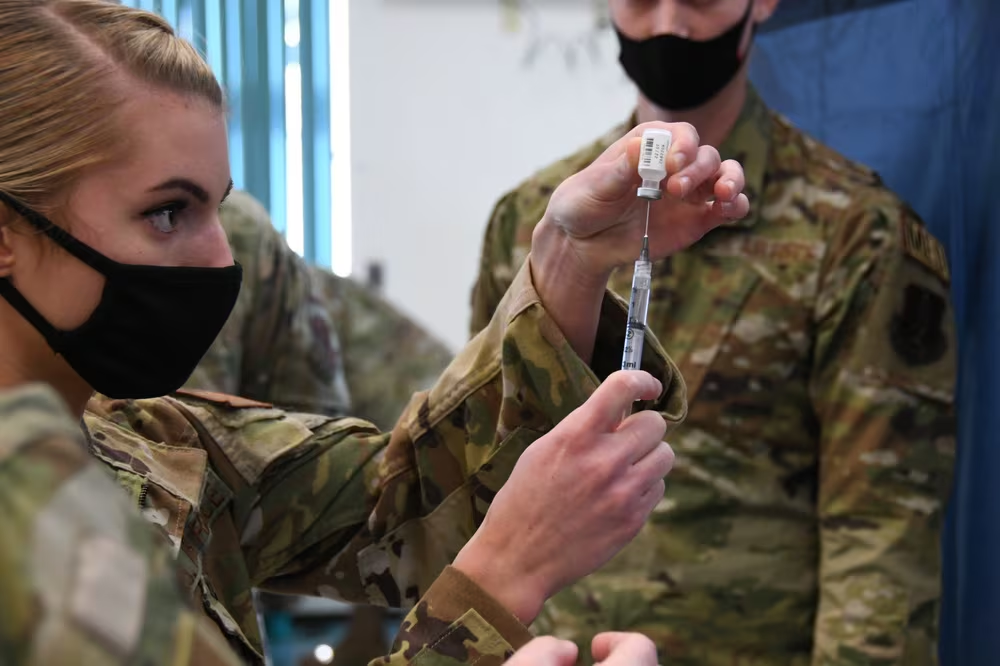
About 93% of DoD active duty and civilian personnel have received at least one dose of a COVID-19 vaccine, OMB said in a Nov. 24 release. The office did not break out the numbers by full vaccination status or civilian-only data.
Contractors who work with the Department of the Air Force must be fully inoculated against the coronavirus by Dec. 8.
Nearly 782,000 Americans, including 142 Air Force employees, contractors and dependents, have died during the COVID-19 pandemic so far, according to the Centers for Disease Control and Prevention. Seventy-five percent of Americans ages 5 and older have gotten at least one shot so far; severe side effects are rare.
Breakthrough cases are possible, but the virus is more easily contracted, and more likely to have serious repercussions, for the unvaccinated. Unvaccinated people are nearly six times more likely to catch the coronavirus, 10 times more likely to be hospitalized and 11 times more likely to die of COVID-19 than those who are vaccinated, the CDC said.
Rachel Cohen is the editor of Air Force Times. She joined the publication as its senior reporter in March 2021. Her work has appeared in the Washington Post, the Frederick News-Post (Md.), Air and Space Forces Magazine, Inside Defense, Inside Health Policy and elsewhere.
